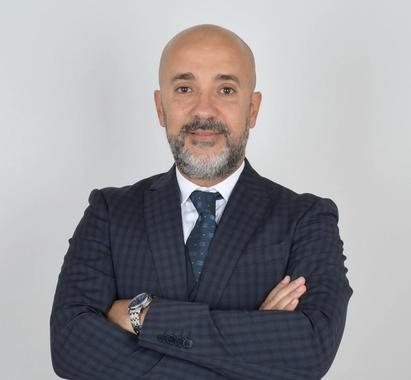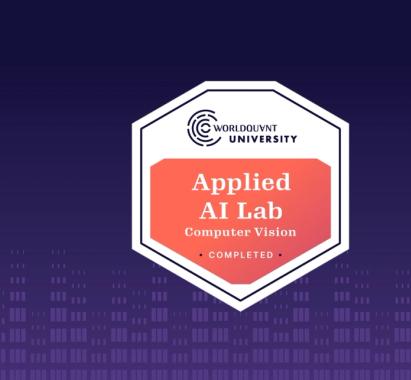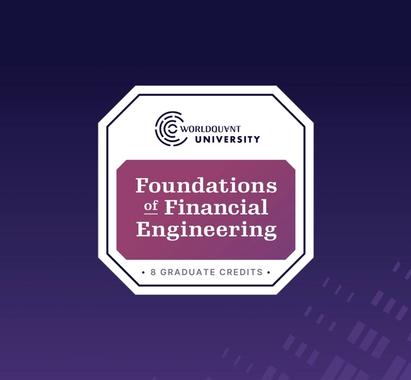Online Education: A Bridge Not Too Far

Retired Admiral James Stavridis believes in building bridges, not walls, especially when it comes to national security. The 30-plus-year veteran of the United States Navy realized during the September 11 terrorist attacks that the 20th-century strategy of erecting barriers like the Maginot Line and the Berlin Wall would not be an effective defense in the current century. That morning, sitting in his office at the Pentagon, Stavridis watched in horror as American Airlines Flight 77 flew into what is arguably the world’s most secure building. “Twentieth-century security failed us because we relied on walls,” he told a rapt audience at WorldQuant, LLC’s Global Summit in Puerto Rico two years ago.
For Stavridis, who from 2009 to 2013 oversaw operations in Afghanistan, the Balkans, Libya and Syria as the supreme allied commander of the North Atlantic Treaty Organization, the secret to global security is alliances, friendships and partnerships. In his current role as dean of the Fletcher School of Law and Diplomacy at Tufts University in Boston, the Florida native and chief international security analyst for NBC News is helping the next generation of world leaders learn how to develop those relationships. Although his busy schedule doesn’t permit him to teach a full course, Stavridis makes himself available to give individual lectures on everything from diplomatic history to how the Libyan civil war unfolded.
In January, Stavridis expanded his educational responsibilities when he joined WorldQuant University as chairman of the not-for-profit’s advisory board. The mission of WorldQuant University — launched by WorldQuant founder Igor Tulchinsky in January 2016 to offer qualified applicants a free, two-year online master’s program in financial engineering — is to break down the geographic and cost barriers to a quality education. This spring Stavridis spoke with WorldQuant Global Head of Content Michael Peltz about how his military experience has shaped his approach to education, why he believes online learning will continue to grow in importance and what he does to further his own education.
How did you get involved with WorldQuant University?
James Stavridis: It started with a speech I gave in Puerto Rico [in 2015] for a gathering of all the employees of WorldQuant. They asked me to speak about leadership. In the course of that, I pointed out that for me one of the most important qualities a leader can have is self-education — this idea that we get a degree, perhaps, but as we go through our lives, we’re constantly refreshing it and self-educating through reading, through what we do online, through conversations we have, both formal and informal.
And then, secondly, so often the solution to leadership challenges rest on education — either formally educating a workforce, informally educating a group of direct reports, creating a market through educating a wide variety of consumers or changing political dynamics by educating an electorate. Education is fundamental to everything. So I made that point in the speech, which was well received by the team, and I became friendly with Igor and others, and over time they asked me if I would be interested in being part of this brave new world of WorldQuant University, and I said yes.
How much did you know about WorldQuant University back then?
I knew almost nothing, and, of course, this is the attraction of audacious ideas. I’ve spent decades in the military taking on big challenges: Afghanistan, the Balkans, Syria, piracy and cyber. This looked to me like another big challenge, and now I’m an educator, that’s my profession. So it seemed very logical to me to take on a new kind of challenge in a highly technical kind of space — this movement of online education — and to do it with, obviously, a first-rate team of people. So WorldQuant University was immediately appealing to me.
How do you apply your military experience to the world of education
There are, perhaps surprisingly, many, many parallels. The U.S. military is above all a learning organization. From the moment you come in and raise your right hand and swear to support and defend the Constitution of the United States, you are constantly being educated. For me, that was a trajectory that began at Annapolis at the U.S. Naval Academy, but then continued. Essentially, every year I was going to different schools, being exposed to different training regimes. Eventually, I went back to earn a Ph.D. at the Fletcher School, funded by the Navy, and continued onward, attending the National War College, the highest institute of higher education on military operations in the world.
I developed, as a result, a deep appreciation for education and all that it means. So, first, that continuum of education as foundational is something I’ll apply to WorldQuant University. Second, it’s discipline. In order to get through these programs, you’ve got to be highly disciplined. You’ve got to be capable of putting things in order and doing them one after another. I always say the secret of life is not being intelligent, it’s being organized. And organization comes from discipline. Discipline comes from making choices. And I think that something like WorldQuant University is a choice for someone to make because it’s free, which is extraordinary.
Third, I take the idealism of the military and try to apply it to WorldQuant University. What the military is all about is creating freedom and security; it’s about trying to make the world a better place. I think that precisely what is so attractive about WorldQuant University is that it’s a very idealistic concept, and therefore very attractive to me as a former military person. And by the way, one of the things I hope to do for WorldQuant University is get veterans engaged in it — young men and women coming out of the military who are technically oriented. The military has a deep bench in terms of technical capability and STEM [science, technology, engineering and mathematics]. Many of them would be superb candidates as students at WorldQuant University. So I think those are the three principal things that have transferred over for me.
How do you extend the experience of a real classroom to online learning?
Well, first of all, it’s important to acknowledge that personal contact between human beings trumps everything. So if you can have an in-class experience, have at it. It’s going to be, in the end, the best. But — and it’s a big but — in modern life today it’s so difficult to generate that personal contact in a classroom for many, many people.
And let’s face it, in a certain sense, what happens at top universities hasn’t changed for thousands of years. That’s how Socrates gathered his pupils around him and lectured them, had conversations with them. What we can do in the modern world, because not everyone has the twin luxuries of time and money, is create an alternative, high-quality, highly curated online experience that will be particularly powerful in technical subjects because technical subjects offer the advantage of black-and-white, right-and-wrong answers and methods. And so, I’d say, of all the disciplines I can think of, the one that we have chosen to deliver, of financial engineering and potentially data science, is most amenable to this kind of high-quality online experience.
I think we’ve chosen well in terms of what we want to deliver. We can produce a very high-quality product, both in terms of what we give the students and then, after the students complete the course, what they will offer to potential employers. Again, it’s very difficult to 100 percent substitute for that in-class quality, and we recognize that. But we are, I would argue, the next best thing.
Is it important to increase diversity among STEM students?
It is very important. There are three vectors of diversity. One is geographic, one is racial, and one is gender. We’ve solved geographic, we’ve solved racial, but we have not solved gender. It’s a problem across STEM, and I would argue that our form of delivery — which allows very personal, individualized experiences — may be a way to encourage more women to come into a STEM setting, when they’re not in what they may perceive as a more threatening environment. So potentially we are part of the solution, but clearly this is a worldwide challenge. And let’s face it: We can’t do 100 percent of what we need to do as a world, technologically, with only 50 percent of the population. We need everybody engaged.
How do you see education evolving over the next 20 years?
You can think of it as various brands of watches. Right now there are more high-quality, luxury-brand watches out there than I think there will be 20 years from now. Similarly, these kind of very wonderful, small, high-number-of-faculty-to-low-number-of-students institutions — the Harvards, Princetons, Oxfords, Cambridges and other high-end luxury brands — I think they’ll certainly continue to exist, but there’ll be fewer of them. At the other end of the spectrum, the good, solid $50 or $100 watches that tell time, frankly, just as well as those big, expensive models — I think you’re going to see a lot more of those. Where we’re pitching our product is at the end of the spectrum where we can offer a great deal of high-quality education but do it at a much, much lower price, on the theory that our watches are going to tell time just as well as those very expensive watches will. So I think the dial will turn in favor of low-cost, convenient but high-quality, highly curated online education, and WorldQuant University is at the forefront of that.
Today there are almost 4,000 four-year degree-granting institutions in the United States, and the top 400 will almost assuredly survive in their current form. The next 1,000 will modify and perhaps find ways to really cut costs. And 1,000 will probably close or merge or shake out as you look at the landscape over the next 20, 30 years — we’re talking big changes ahead in higher education. And WorldQuant University, I think, is on the absolute forward edge of that.
You talked about the audaciousness of the vision behind WorldQuant University. At the same time, it’s very practical in terms of the skills it is looking to teach.
Yes, I think that’s exactly right. The skills are practical, the ideal is monumental, and, as a result, it’s a very attractive enterprise with which to involve yourself, both as a student or, in my case, as a board member.
How important will it be in future years to have an advanced degree?
I think less important than it has been, in the sense that I see a lessening of demand for the actual degree but a higher demand for practical skills and credentialing. Germany is a world leader in this area and has created cadres of students who are not degreed, per se, but are highly credentialed. They do everything from coding to machinery repair to high-end health care delivery. There are many, many practical skill sets that can be more valuable than a master’s degree in 19th-century baroque Italian literature, for example. So I think there’s going to be less emphasis on degrees and more emphasis on practical life skills coming out of higher education. Again, WorldQuant University is a pretty good example of that.
What role do you see government playing in education?
I think education is a fundamental responsibility of a government because if it is not involved — we see this in other places with less-developed governance infrastructure — education ends up being distributed extremely unequally, with the wealthiest getting the best and the poorest getting nothing. Government can ensure that there’s a minimum bar, so it helps in distributing education fairly. Second, it sets standards. Who else can do that? You can imagine a world in which there’s sort of self-governing educational organizations, but that’s highly inefficient. Third, government provides security in our schools, which sadly is a necessity. Fourth, government creates a funding mechanism through taxes that are then redistributed evenly because otherwise people whose children had completed school would follow their self-interests and probably not want to contribute funding for elementary education, for example, saying: “My children are grown up. Why should I pay for elementary education?” And I think the answer to that, and I think of it every year when I write a tax check to the U.S. government, is that what I’m purchasing is civilization. I’m purchasing an educated world, and an educated world is a safer world for all of us, and it’s a better world to live in.
What do you do to further your own education?
I read incessantly. I have a new book out called The Leader’s Bookshelf. It’s about 50 books that can make you a better leader, none of which are actually leadership books per se. They’re novels, poetry, plays, memoirs, biographies, autobiographies, histories. I’m a firm believer, as I mentioned up front, of self-educating, continuing to learn. My principal path is reading. I enhance that with thinking consciously about the experiences I have had and in my own leadership role as the dean of a graduate school with about 1,000 people under my purview.
You have to not only self-educate but self-evaluate, and you should also talk to your superiors. I talk to the president and provost for my university, who help and guide me as I work in what for me is a relatively new culture. Second, you should talk to your peers — in my case, talk to other deans. How are they doing? What can they offer and do to help you? And talk to your subordinates — ask them, “How am I doing?” Mayor Ed Koch was very famous for walking around New York City saying constantly: “How am I doing? How am I doing?” People would give him pretty direct answers. I relish that. I hope it makes me a better leader and a better educator, and I’m very happy in my new profession, which combines both.
---
Thought Leadership articles are prepared by and are the property of WorldQuant, LLC, and are circulated for informational and educational purposes only. This article is not intended to relate specifically to any investment strategy or product that WorldQuant offers, nor does this article constitute investment advice or convey an offer to sell, or the solicitation of an offer to buy, any securities or other financial products. In addition, the above information is not intended to provide, and should not be relied upon for, investment, accounting, legal or tax advice. Past performance should not be considered indicative of future performance. WorldQuant makes no representations, express or implied, regarding the accuracy or adequacy of this information, and you accept all risks in relying on the above information for any purposes whatsoever. The views and opinions expressed herein are those solely of the author, as of the date of this article, and are subject to change without notice, and do not necessarily reflect the views of WorldQuant, its affiliates or its employees. No assurances can be given that any aims, assumptions, expectations and/or goals described in this article will be realized or that the activities described in the article did or will continue at all or in the same manner as they were conducted during the period covered by this article. Neither WorldQuant nor the author undertakes to advise you of any changes in the views expressed herein. WorldQuant may have a significant financial interest in one or more of any positions and/or securities or derivatives discussed.



